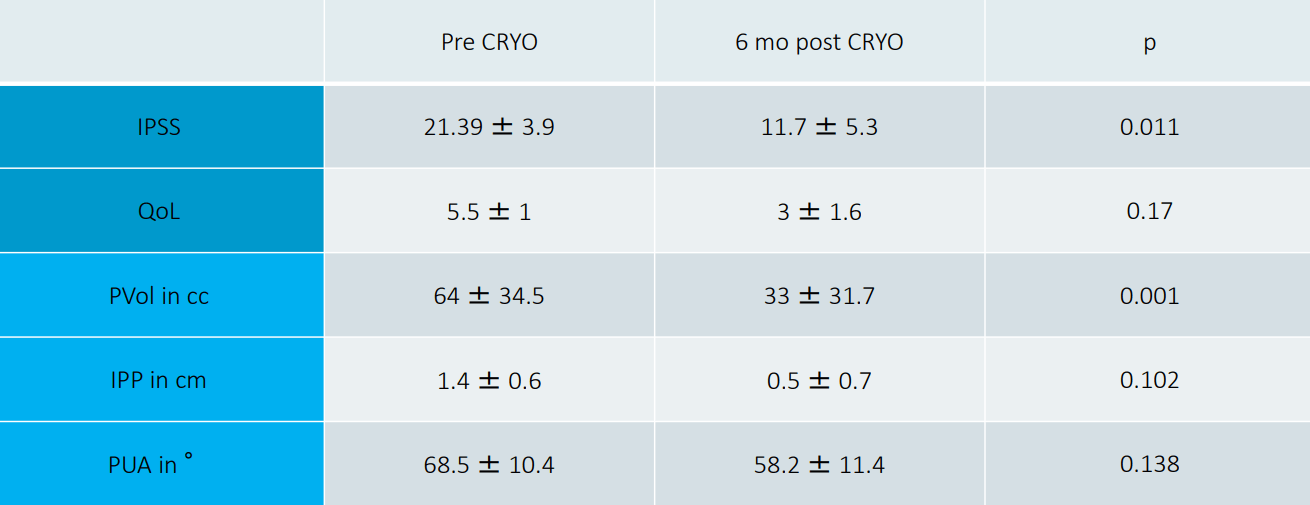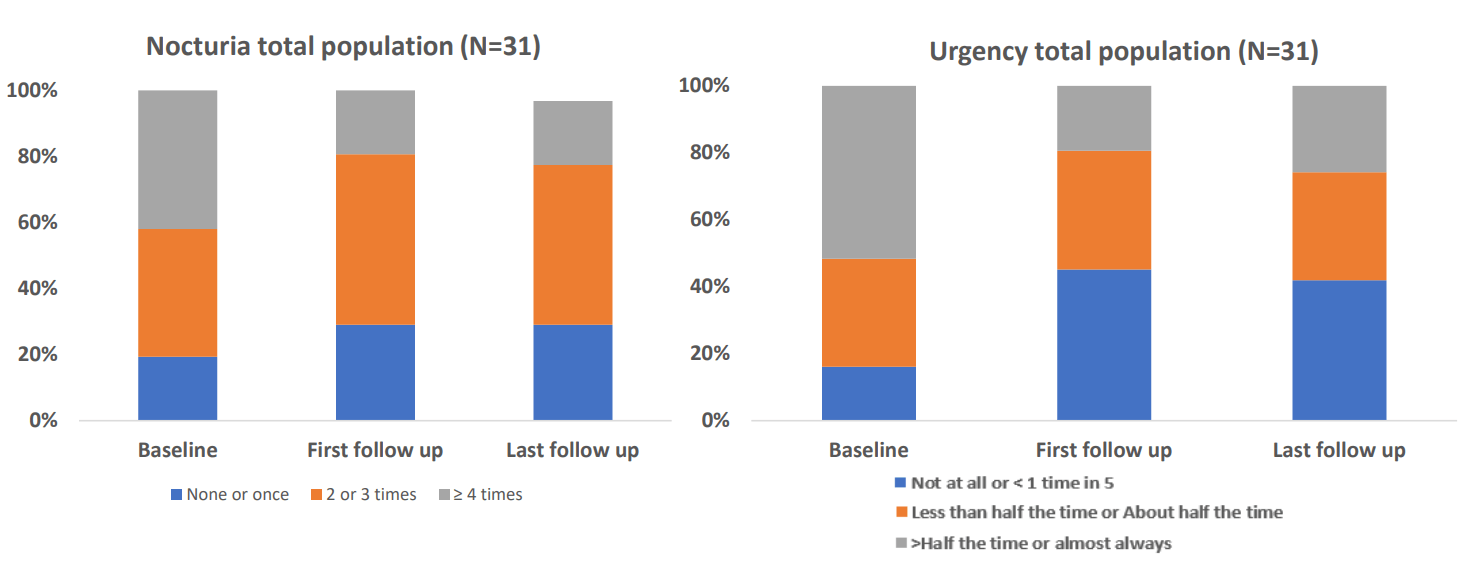Comprehensive guide to stage 4 prostate cancer: Treatment options
Prostate cancer is the most common type of cancer in men and one of the main causes of death in developed countries of Europe and North America. The incidence of it has risen annually by 3% since 2014. Prostate cancer is the second-leading cause of death among males in the US. According to the American Cancer Society, about 1 in 44 men will die of prostate cancer. The pathology is not always diagnosed, characterized by a latent course, which may be a reason why more of the advanced forms of prostate cancer are found at late stages in the present days. Therefore, it is crucial to be aware of all stage 4 prostate cancer treatment options.
Standard Treatment for Stage 4 Prostate Cancer
Selecting the stage 4 prostate cancer treatment often depends on factors like the extent of metastasis, prior treatments, and the patient’s personal preferences. There are several treatment strategies, that are considered to be the standard of treatment for 4th stage prostate cancer, including hormones, radio- and chemotherapy, immunotherapy, targeted therapy, and surgery.
Hormonal therapy is the basis of locally advanced and metastatic prostate cancer treatment. It is a systemic type of treatment, which is aimed at blocking the synthesis of male hormones (androgens) since they facilitate tumor growth. Hormonal therapy controls disease progression in about 70–85% of advanced cases temporarily. Biomarker identification can guide personalized treatment plans, which is a reason it is recommended to be done prior to selecting a management strategy.
Chemotherapy is another systemic treatment modality that is used for advanced prostate cancer management. Typically, 6 to 10 cycles of chemotherapy have to be performed in order to reach effect. It is also more beneficial for patients with hormone-resistant and metastatic cancer, especially when combined with other interventions (radio- andor immunotherapy).
Radiotherapy is a standard therapy for recurrent and advanced prostate cancer. It is typically administered alongside hormone therapy (for hormone-sensitive tumors) and chemotherapy (so-called triplet systemic therapy). If a tumor is resistant to previous treatment options, radiopharmaceuticals can be applied such as Radium-223. Radium-223 is typically prescribed for advanced prostate cancer, which has already metastasized to the bones. Radium-223 delivers radiation directly to bone metastases, minimizing damage to healthy tissue. It is commonly administered in combination with androgen deprivation therapy (hormones) andor chemotherapy.
Targeted therapy is the first-line treatment of metastatic prostate cancer alongside other treatment modalities. These drugs target specific proteins on the surface of malignant cells, which are responsible for cancer cell’s growth and nutrition. Targeted therapy statistically improves progression-free survival in patients with metastatic castration-resistant cancer. When used in combination with hormone therapy, it can lead to a significant reduction of PSA levels, improved survival rates, and better disease control.
Oftentimes, these methods are combined for the management of metastatic cancer in order to provide maximum eradication and disease control. Unfortunately, conventional methods like chemotherapy, hormonal therapy, and radiation often come with side effects and lower tolerance, especially in advanced stages. Therefore, other novel therapeutic modalities are emerging, which demonstrate better tolerability and fewer adverse effects. These innovative methods include dendritic cell therapy, chemoembolization, and treatment with Actinium and Lutetium.
New treatment methods for stage 4 prostate cancer
Interventional Radiology
Interventional radiology offers several minimally invasive procedures for managing advanced prostate cancer. These image-guided techniques provide targeted treatment options with reduced damage to surrounding healthy tissues. Interventional procedures are typically performed percutaneously using specialized instruments under real-time imaging guidance such as ultrasound or computed tomography (CT), enabling physicians to accurately target abnormal tissues while preserving normal structures. Modern clinical practice employs various interventional modalities, each with specific advantages in managing different aspects of prostate cancer.
Thermal ablation is one of the primary forms of ablation, which employs high temperatures to destroy tumor cells. Among the most well-researched modalities in this category are high-intensity focused ultrasound (HIFU), which delivers concentrated ultrasound energy, and laser interstitial thermal therapy (LITT), which focuses laser energy on tumor foci. Originally indicated for benign prostatic hyperplasia (BPH) and locally advanced prostate cancer, thermal ablation has become relevant in managing stage 4 prostate cancer, especially in cases of recurrence after radiation therapy.
Cryoablation is another ablation energy-based therapeutic modality utilizing freezing to cause cellular death in tumors. In the context of advanced prostate cancer management, it proved to have promising outcomes, such as a considerable reduction in prostate-specific antigen (PSA) levels. The post-treatment investigation also shows stable prostate volumes and clinically valid local tumor suppression. In addition, cryoablation is associated with a low number of side effects presenting it as a patient-friendly cancer treatment modality.

Electrochemotherapy (ECT) utilizes targeted electrical current alongside the administration of chemotherapeutic agents in the form of an injection, which results in maximizing tumor cell elimination. This method has shown particular efficacy in treating large tumors, particularly those in anatomically crucial or surgically inaccessible areas (near vital structures). Furthermore, ECT contributes to immune response activation, resulting in additional therapeutic value when accompanying immunotherapy in metastatic prostate cancer management.
Chemoembolization is a localized, minimally invasive treatment that delivers high concentrations of chemotherapy directly to the tumor while blocking its blood supply. The procedure involves inserting a catheter into the blood vessel (typically in the groin). This approach is particularly effective for targeting metastatic lesions in the liver or other localized areas.
Studies have shown that chemoembolization significantly reduces the size of metastatic tumors as well as the size of the prostate. For stage 4 prostate cancer patients, this dual-action mechanism provides both tumor control and symptom relief. It is also extremely beneficial for the management of negative symptoms such as gross hematuria or urinary retention as a result of lower urinary obstruction in patients with advanced prostate cancer. The precision of this targeted approach minimizes systemic side effects while maximizing therapeutic impact at the tumor site.
To explore the steps of how the procedure is performed and the practical benefits of chemoembolization, we suggest you watch the interview with Professor Thomas Vogl, the Head of Radiology at University Hospital Frankfurt, who discusses what chemoembolization is, indications, and contraindications for this treatment.
Prostatic artery embolization (PAE) is a minimally invasive intervention that offers valuable palliative benefits for stage 4 prostate cancer patients. While initially recognized for benign prostatic hyperplasia, PAE has proven increasingly relevant for advanced cancer management where quality of life is a critical concern.
PAE works by strategically reducing blood flow to the prostate and metastatic lesions, helping control tumor-related symptoms and complications. It is particularly effective for patients with persistent lower urinary tract symptoms, which frequently accompany advanced prostate cancer. These symptoms typically include urinary retention, nocturia, and incomplete bladder emptying.

As a supportive therapy in stage 4 prostate cancer management, PAE has demonstrated a favorable safety profile with minimal side effects. PAE successfully addresses complications like bleeding, pain, and urinary obstruction that often accompany advanced disease. It can be performed under local anesthesia, requires minimal recovery time, and provides rapid symptom relief even when curative options are limited. PAE represents a valuable patient-oriented option that significantly enhances comfort and quality of life in comprehensive stage 4 prostate cancer care.
Immunotherapy with Dendritic Cells
This therapy leverages the patient’s immune system by training. Dendritic cells are antigen-presenting cells that capture foreign antigens, analyze them, and mediate immune response while promoting tolerance to the self and harmless environment. As a result, dendritic cells can activate specific T-cells programmed for killing the pathogen expressing this specific antigen. Being a massive scientific breakthrough, it brought its discoverer (Ralph M. Steinman) a Nobel Prize in medicine. Immunotherapy with dendritic cells offers a personalized approach, strengthening the body’s natural defense mechanisms.
Dendritic cell immunotherapy is particularly useful for advanced cancers such as 4th stage prostate cancer treatment or recurrent prostate cancer. Hormone-refractory and metastatic prostate cancers are also preferable candidates for immunotherapy with dendritic cells. Immunotherapy is commonly well-tolerated and has fewer side effects compared to standard treatment modalities.
To learn more about this promising treatment, watch an interview with Prof. Gansauge, who is delving into the latest advancements in cancer treatment and answering common patient questions.
Actinium Treatment
Actinium-225 PSMA-617 is a novel award-winning type of radionuclide therapy for metastatic prostate cancer. It targets a specific protein named PSMA, which is typically found on the surface of cancer cells in a remarkably high amount as compared to healthy prostate cells. PSMA-617 is a specific artificially created molecule, which searches for cancer cells expressing PSMA protein on their surface and connects with them.
Since PSMA-617 possesses an ability to carry radionuclides such as Actinium-225, by binding to cancer cell proteins, it enables targeted irradiation of these cells. By forming an extremely firm bond with PSMA antigens on the surface of cancer cells, Actinium-225 PSMA therapy grants a chance to eliminate even the most distant metastases. Owing to such characteristics, Actinium-225 PSMA-617 showed quite promising results in various studies in patients with metastatic castration-resistant prostate cancer (mCRPC), such as quite high treatment response rates, low toxicity, and overall pain reduction.
Treatment with Lutetium
Lutetium-177 vipivotide tetraxetan is an innovative therapeutic agent designed for advanced metastatic prostate cancer, such as for prostate cancer treatment stage 4. As a part of a new branch of medicine – theranostic medicine – this novel method combines diagnostic imaging with targeted radiation. As a result, this targeted radionuclide therapy delivers radiation specifically to prostate cancer cells expressing the Prostate-Specific Membrane Antigen (PSMA). Lutetium-177 is usually administered alongside its companion diagnostic substance gallium-68 gozetotide, which is used in PSMA PET imaging to accurately identify PSMA-positive cancer cells.
In order to understand this method better, we invite you to watch Dr. Stefan Dresel talking about how Lutetium-177 PSMA therapy works. Both the lutetium-177 PSMA therapy and the gallium-68 PSMA imaging received FDA approval, with clinical evidence demonstrating notable improvements in survival outcomes, quality of life, and delayed disease progression for prostate cancer patients. It is validated by inspiring stories from our patients as well. John Baker, who struggled with metastatic prostate cancer, went through several therapeutic modalities. Yet, when he found out about Lutetium-177, he decided to try it out. And it proved to be worthwhile. Watch his cancer management journey and find out more about his experience with Lutetium.
| Treatment Method | GERMANY* | GB | USA |
|---|---|---|---|
| Standard Treatment | €80,000 - €150,000 full course | €90,000 - €165,000 full course | €100,000 - €180,000 full course |
| Innovative Methods | €25,000 - €60,000 full course | €70,000 - €120,000 full course | €100,000 - €150,000 full course |
Comparative chart with the effectiveness of the listed methods
Research suggests that a multidisciplinary approach often yields the best results for patients with advanced stages of disease. Combining hormone therapy with chemotherapy or adding newer agents like enzalutamide or abiraterone acetate can extend survival and delay disease progression. Regular monitoring and adjustments to treatment for stage 4 prostate cancer are crucial to address changes in the disease’s behavior.
These advanced treatments provide new opportunities for patients with stage 4 prostate cancer, improving outcomes and quality of life. Ongoing research is advancing approaches, offering hope for a cure. Contact our medical team for a consultation and the best treatment option for you.
| CharacteristicsTherapy type | 2-Year Survival Rate | Response Rate | Duration | Side Effects |
|---|---|---|---|---|
| Standard Treatment | ~25% for advanced cancer | Less than 10% | Several cycles | Severe (nausea, fatigue, hair loss, immunosuppression, skin irritation) |
| Innovative Methods | ~60% for advanced cancer | 45-65% | Up to 4 sessions | Mild (localized discomfort) |
*Data depends on the stage of the disease
A Medical Journey: Every Step of the Way With Booking Health
Finding the best treatment strategy for your own clinical situation is a challenging task. Being already exhausted from multiple treatment sessions, having consulted numerous specialists, and having tried various therapeutic interventions, you may be lost in all the information given by the doctors. In such a situation, it is easy to choose a first-hand option or to follow standardized therapeutic protocols with a long list of adverse effects instead of selecting highly specialized innovative treatment options.
In order to make an informed choice and get a personalized cancer management plan, which will be tailored to your own specific clinical situation, consult medical experts at Booking Health. Being at the forefront of offering the latest medical innovations for already 12 years, Booking Health possesses solid expertise in creating complex cancer management programs in each individual case. As a reputable company, Booking Health offers personalized stage 4 prostate cancer treatment plans with direct clinic booking and full support at every stage — from organizational processes to assistance during treatment. We provide:
- Assessment and analysis of medical reports
- Development of the medical care program
- Selection of a suitable treatment location
- Preparation of medical documents and forwarding them to a suitable clinic
- Preparatory consultations with clinicians for the development of medical care programs
- Expert advice during the hospital stay
- Follow-up care after the patient returns to their native country after completing the medical care program
- Taking care of formalities as part of the preparation for the medical care program
- Coordination and organization of the patient's stay in a foreign country
- Assistance with visas and tickets.
- A personal coordinator and interpreter with 24/7 support.
- Transparent budgeting with no hidden costs
Health is an invaluable aspect of our lives. Delegating management of something so fragile yet precious should be done only to experts with proven experience and reputation. Booking Health is a trustworthy partner, who assists you on the way of pursuing stronger health and better quality of life. Contact our medical consultant to learn more about the possibilities of personalized treatment with innovative methods for metastatic prostate cancer with leading specialists in this field.
Every Patient Has a Story: Booking Health Treatment Journeys that Inspire
Frequently Asked Questions of Our Patients About Stage 4 Prostate Cancer Treatment
Send request for treatmentThe disease spreads beyond the prostate to nearby tissues (4A) or distant organs like bones or lymph nodes (4B). Diagnosis includes PSA tests, biopsies, and imaging (CT, MRI, bone scans).
Symptoms include persistent bone pain, fatigue, difficulty urinating, weight loss, swelling in the legs, and general weakness.
The 5-year survival rate for Stage 4 is approximately 30%, with higher rates in cases confined to nearby structures (Stage 4A).
Options include hormone therapy, chemotherapy, immunotherapy, targeted therapy, radiation therapy, and palliative care. Cytotoxic chemotherapy is often used in cases where hormonal therapies fail to control the disease.
Stage 4 is typically managed rather than cured, focusing on controlling the disease, alleviating symptoms, and improving quality of life.
Hormone therapy lowers or blocks testosterone, slowing cancer growth. It is often the first-line treatment for metastatic prostate cancer.
Chemotherapy is effective in reducing symptoms and improving survival in many patients with metastatic prostate cancer, but it is not curative.
Side effects include fatigue, nausea, weakened bones, hormone-related effects (like hot flashes), and increased infection risk. Long-term hormone therapy can increase the risk of osteoporosis in patients.
Cancer cells travel via the bloodstream or lymphatic system, often lodging in bones, lungs, or the liver.
Staging 4A involves local spread to nearby structures or lymph nodes, while Stage 4B includes distant metastases, often in bones or organs.
Yes, many clinical trials explore new drugs, immunotherapies, and combinations of treatments for advanced prostate cancer.
Palliative care focuses on relieving pain, managing symptoms, and providing emotional and psychological support to enhance quality of life.
Life expectancy varies widely, often depending on the extent of metastasis and the effectiveness of treatment of stage 4 prostate cancer, but many patients live several years with advanced care.
Survival varies based on individual factors, but modern treatments can significantly extend a patient’s life expectancy. Many studies report median survival ranging from 2 to 5 years, though some patients experience longer periods of disease stabilization. Outcomes depend on overall health, tumor characteristics, and treatment response.
Stage 4 prostate cancer is generally not considered curable because it has spread beyond the prostate. Instead, treatment focuses on controlling disease progression, alleviating symptoms, and improving overall quality of life. Some patients may experience extended remission with advanced therapies, but the goal is management rather than cure.
Recent advances include targeted therapies such as PARP inhibitors, next-generation hormonal agents like abiraterone and enzalutamide, and innovative immunotherapies. Radioligand therapies and refined chemotherapy regimens also offer new hope. Numerous ongoing clinical trials continue to investigate and improve these approaches, providing more personalized treatment options for patients.
Choose treatment abroad and you will for sure get the best results!
Authors:
This article was edited by medical experts, board-certified doctors Dr. Nadezhda Ivanisova, and Dr. Vadim Zhiliuk. For the treatment of the conditions referred to in the article, you must consult a doctor; the information in the article is not intended for self-medication!
Our editorial policy, which details our commitment to accuracy and transparency, is available here. Click this link to review our policies.
Sources:
National Institutes of Health (NIH)
Read:
Actinium-225 PSMA Therapy: Revolutionizing Treatment for Metastatic Prostate Cancer
Treatment of prostate cancer in leading German hospitals: the innovative drug Lutetium-177






